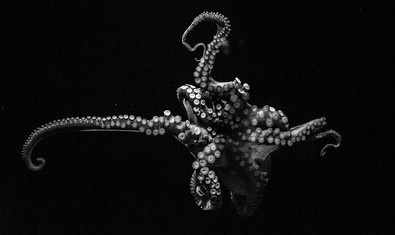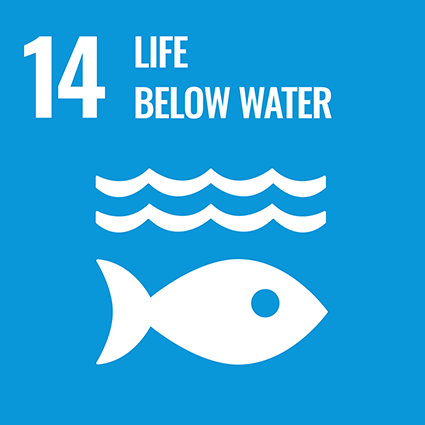Aliens of the deep
The documentary suggests that octopuses have many ‘human’ characteristics, but they are also very different from us. Dr. Scheel himself claims that he read a lot of science fiction when he was a child and decided that “working with marine animals seemed as close as I was likely to get to studying aliens.” The scientists who worked on the ‘Octopus Genome Project’ agree. They have claimed that octopuses are genetically so different from us (and even from other invertebrates) that they might as well be considered ‘aliens’. Octopuses are also very different from us physically. They have three hearts and blue blood. They have one central brain and eight smaller ‘brains’, one for each tentacle. They might be smart, but they lack some characteristics typical of intelligence such as living in communities and having a long lifespan. In fact, octopuses are solitary animals, and they only live for six months to five years.Anthropomorphism
So, how ‘human’ are octopuses? And how ‘human’ are other animals? Scientists agree that attributing human qualities and intentions to animals is an uncontrollable and universal activity of our brain, which is called “anthropomorphism”. In other words, when we see an animal doing something, we automatically interpret its behaviour in human terms. That’s why our language is full of expressions such as ‘stubborn as a mule’, ‘cunning like a fox’ or ‘industrious as an ant’. There is a difference, though, between a simplistic view of animals described in human terms, and recognizing traits shared by different species. In 2012 a group of scientists published ‘The Cambridge Declaration on Consciousness’ that states that non-human animals have brains (even if very different from ours) that allow them to be conscious. This means that they are self-aware and are capable of conscious decisions. Also, various scientific studies have proved that many animals have complex social lives and experience emotions.Non-human persons
These scientific observations have important philosophical and moral consequences. They challenge the theory of human exceptionalism, which claims that humans are special and stand above all other creatures. Instead, they support the ideas of people who think that all animals should be treated with equal respect, even more so if science tells us that they can think and feel like us. Recent scientific insights regarding animals is also the basis for new laws passed to protect ‘non-human persons’. For example, in 2007 the Balearic Islands gave legal rights to all great apes. This means that it is no longer possible to use apes for harmful experiments, in circuses or for television commercials. In 2013, India recognized that dolphins and whales are “highly intelligent and sensitive”, and banned their use in marine animal parks. This new attitude towards animals might actually reveal a lot about us: it demonstrates our capacity for empathy, one of the most ‘human’ qualities.
Useful links
1) Watch this BBC video that describes octopuses:
https://www.youtube.com/watch?v=6QCF2MeUnKY
2) Here is the video of Heidi ‘dreaming’ from the documentary ‘An Octopus in My House’:
https://www.youtube.com/watch?v=0vKCLJZbytU
3) Find out more about Heidi here:
https://www.dogonews.com/2019/10/3/researcher-captures-mesmerizing-video-of-pet-octopus-changing-color-while-dreaming
4) Are you interested in the Cambridge Declaration on Consciousness? Here it is:
http://fcmconference.org/img/CambridgeDeclarationOnConsciousness.pdf
5) Are you interested in speciesism? Here is the Simple English and English Wikipedia pages:
https://en.wikipedia.org/wiki/Speciesism
COMPREHENSION
1) Read the article and complete the sentences with the right alternative.
1. Octopuses are very intelligent because
___
(Carlo Dellonte)
(Image credits: Flickr, Flickr)
- they can dream.
- they are good at problem-solving.
- they watch TV.
- looking for food.
- solving puzzles.
- sleeping.
- are similar to other invertebrates.
- are aliens.
- have ‘alien’ characteristics.
- live long lives.
- are solitary.
- live short lives.
- a correct interpretation of animal behavior.
- an incorrect interpretation of animal behavior.
- a simplistic interpretation of animal behavior.
- only humans are conscious.
- different types of brains can produce consciousness.
- you need a human-like brain to be conscious.
- suggest that humans and animals share common traits.
- agree with the theory of human exceptionalism.
- agree with anthropomorphism.
- all animals should be treated with respect.
- only some animals, like apes and dolphins, should be treated with respect.
- only humans should be treated with respect.
- only to apes.
- to all kinds of animals.
- to apes and dolphins.
- say that humans and animals are the same.
- are against the use of animals to entertain humans.
- say animals can be used to entertain humans.







